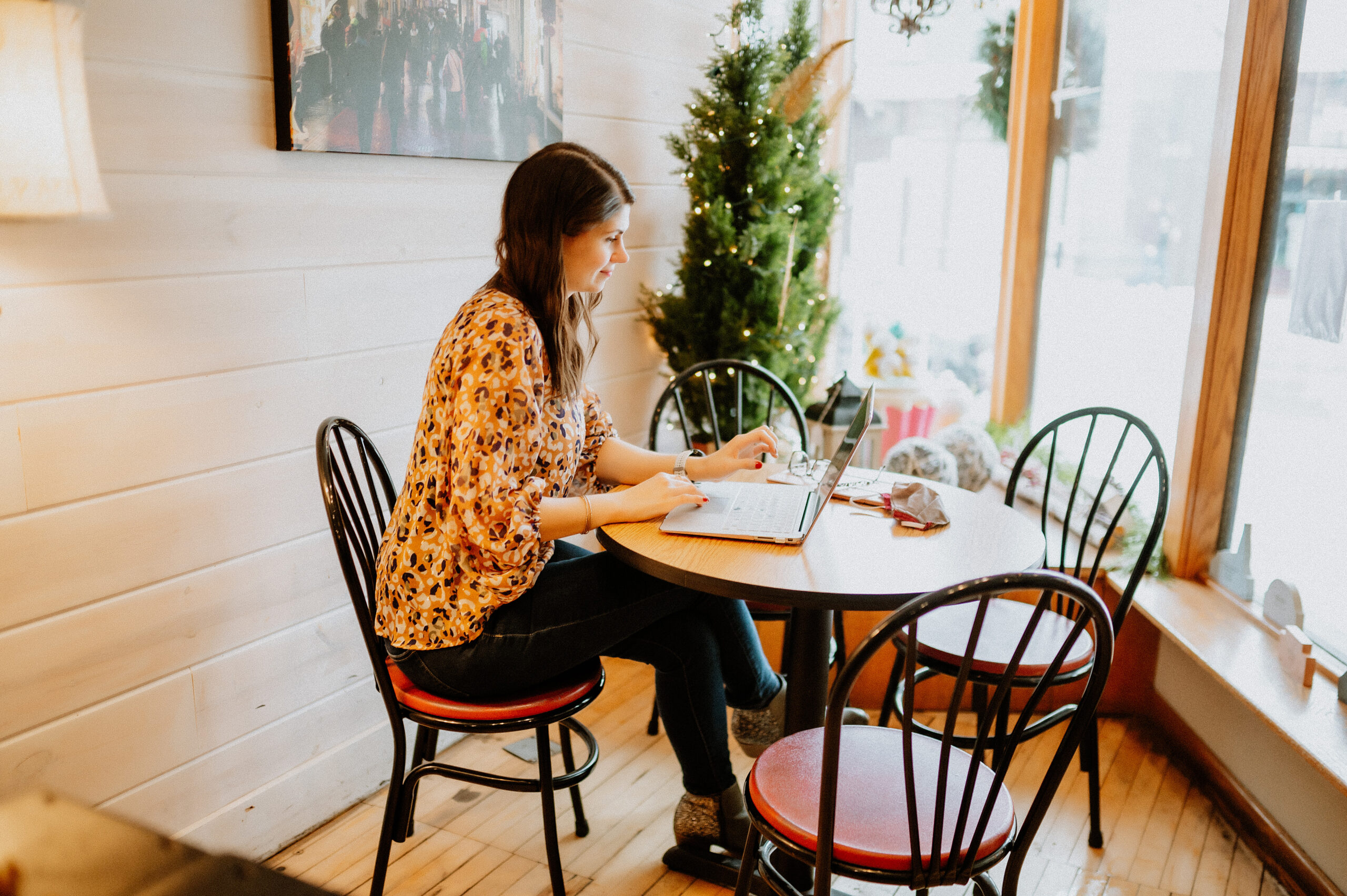Embracing Uncertainty: How to Let Go of the Need for Control in Anxiety and OCD Recovery
October 29, 2024
If you’re someone who struggles with anxiety or OCD, chances are you’ve spent a lot of time trying to feel in control. The idea of uncertainty—of not knowing what’s going to happen or being unsure of outcomes—can feel terrifying. To say the least! Your mind might race with “what if” thoughts, constantly trying to predict or prevent worst-case scenarios. But here’s the truth: trying to control everything only fuels your anxiety. Real recovery comes from embracing uncertainty, and yes, that’s as hard as it sounds—but it’s also incredibly freeing.
Today, I’m going to dive into why uncertainty feels so threatening, how you can start shifting your mindset, and some practical steps to help you loosen your grip on control and let go. As someone who has been helping people with OCD and anxiety for over 15 years (and has dealt with it myself), I know what you’re going through, and trust me, it does get better.

WHY UNCERTAINTY FEELS THREATENING FOR INDIVIDUALS WITH ANXIETY AND OCD
Uncertainty is tough for anyone, but when you’re dealing with anxiety or OCD, it feels like a constant threat. Your brain is wired to search for danger and, in an attempt to protect you, it looks for ways to avoid risks and discomfort. That’s why anxiety pushes you to seek reassurance, double-check things, or go over scenarios in your head. OCD often takes this a step further, creating compulsions—like repeatedly washing your hands or checking the locks—that give you a temporary sense of relief.
But here’s the catch: these behaviors don’t actually make you safer. They feed your anxiety by reinforcing the idea that uncertainty is dangerous. Every time you give in to a compulsion or demand certainty, you’re telling your brain that it’s right to panic in the face of uncertainty. It becomes a cycle that’s hard to break—but break it you can.
THE ROLE OF ERP IN EMBRACING UNCERTAINTY
One of the most effective ways to deal with the need for control is through Exposure and Response Prevention (ERP), a type of cognitive-behavioral therapy designed to help people with anxiety and OCD. It’s typically considered the gold standard for OCD treatment, and it’s one of the many things I go deep into inside the OCD and Anxiety Recover Blueprint.
ERP works by exposing you to your fears and uncertainties without letting you perform the compulsions or avoidance behaviors that normally give you temporary relief.
For example, if your anxiety centers around health concerns, ERP might involve resisting the urge to google symptoms when you feel a cough coming on. Over time, ERP helps you get more comfortable with uncertainty by showing you that you can handle the discomfort—and that the worst-case scenarios your mind is obsessing over are unlikely or manageable.
ERP can feel like a huge challenge because it asks you to sit with the very thing that scares you the most: not knowing. But each time you face uncertainty without trying to control it, you’re retraining your brain to see uncertainty as something you can tolerate, rather than a threat to your safety.

SHIFTING YOUR MINDSET FROM CONTROL TO ACCEPTANCE
One of the hardest parts of anxiety and OCD recovery is shifting from a mindset of control to one of acceptance. It might feel like if you stop trying to control everything, bad things will happen or you’ll lose your sense of security. But the truth is, the more you try to control every outcome, the more trapped you become by your anxiety.
Instead, try focusing on acceptance. This doesn’t mean you have to love uncertainty (because, honestly, who does?). It means learning to coexist with it. You don’t have to know exactly what’s going to happen next to be okay. You don’t have to have everything figured out to feel safe. By accepting that life is full of unknowns, you allow yourself the freedom to live without constantly needing reassurance or guarantees.
PRACTICAL STEPS TO EMBRACE UNCERTAINTY IN DAILY LIFE
Embracing uncertainty doesn’t happen overnight, but there are small, practical steps you can take each day to get more comfortable with it:
- Start small: Begin by letting go of control in low-stakes situations. Maybe it’s allowing yourself to leave the house without checking the stove one more time or not asking for reassurance when you’re feeling unsure. These small wins add up.
- Resist reassurance-seeking: Whether it’s googling symptoms, checking something “just one more time,” or asking someone else if everything’s okay, try to resist the urge. Reassurance might feel good in the moment, but it reinforces the need for certainty, keeping the anxiety cycle alive.
- Shift your language: Instead of saying, “I need to know,” try saying, “I can handle not knowing.” This simple change in self-talk can start to reframe how you approach uncertainty.
- Practice mindfulness: Mindfulness teaches you to stay grounded in the present moment, rather than constantly worrying about future uncertainties. Focusing on your breath, your body, or your surroundings can help anchor you when anxiety starts to rise.
- Embrace discomfort: It sounds counterintuitive, but when you lean into the discomfort of uncertainty, you build resilience. You start to prove to yourself that you can handle the anxiety and that you don’t need to control everything to feel safe.
COMMON CHALLENGES WHEN EMBRACING UNCERTAINTY
It’s important to acknowledge that embracing uncertainty is hard—really hard. It’s common to face setbacks, especially at the beginning. You might feel a strong urge to return to old habits, like seeking reassurance or performing compulsions, because the discomfort of uncertainty can feel overwhelming.
You might also deal with self-doubt, wondering if you’re doing it “right” or if it’s even worth the effort. During these moments, remember that setbacks are part of the process. Progress isn’t about eliminating anxiety or uncertainty; it’s about learning how to cope with them in healthier ways. Be patient with yourself and recognize that this journey takes time.

THE LONG-TERM BENEFITS OF EMBRACING UNCERTAINTY
So, why go through all the effort of embracing uncertainty? Because in the long run, the more you let go of the need for control, the less power your anxiety has over you. You’ll begin to notice that the things you once feared—like not knowing what’s going to happen or not having all the answers—don’t feel as threatening anymore.
By embracing uncertainty, you reclaim your life from the grips of anxiety and OCD. You’ll have more mental and emotional energy to focus on the things that truly matter to you, rather than constantly being consumed by “what ifs” and worst-case scenarios. It opens the door to a more peaceful, fulfilling life—one where uncertainty exists, but it no longer rules you.
If you need more structured support on this journey, my OCD and Anxiety Recovery Blueprint is designed to help you navigate these challenges with evidence-based tools, including ERP techniques and mindset shifts that will guide you through the process of embracing uncertainty.
You don’t have to do this alone. So, take it one step at a time, be gentle with yourself, and know that you are doing the hard work to move toward peace and freedom. You’ve got this!
most popular episodes
Love my podcast?
Episode 112: Postpartum OCD and False Memory OCD
Imagine how in depth I can go in an online course. Instantly downloadable and game-changing. Take the next step towards an amazing life.